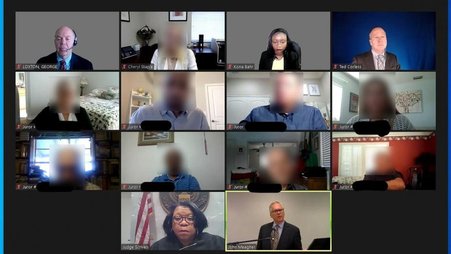Press coalition to courts: Don’t walk back pandemic-era access


CTK/Josef Horazny via AP
Our court system should be open to the public and not operate behind closed doors.
The First Amendment gives the public and the press the right to attend trials, access court documents, and report on the justice system. But far too often, judges try to evade that right by sealing records or holding secret proceedings.
We must fight back against attempts to make the court system less transparent and push to expand access. Reporting on the courts helps make our justice system fairer and guards against miscarriages of justice.

FPF, Demand Progress and more than 40 organizations urge the House to return control of the cameras to C-SPAN to serve the public

Congress gifts judges unprecedented and unconstitutional powers.

Agencies misuse exemptions to cause delay and expense.

Newspaper group refuses to comply with unconstitutional order.

Ruling follows disturbing trend of wealthy and connected financiers attacking the press by bankrolling litigation.

Key First Amendment protections face challenges from Texas and Florida.

Powerful groups aim to silence reporting on unauthorized audio despite its clear significance and immediate reverberations.

In a Supreme Court term packed with controversial cases, one of the more-overlooked rulings has alarmed press freedom advocates as it gutted the legal mechanism used to hold federal officers liable for violating individuals’ constitutional rights.

In the week since Politico dropped its blockbuster reporting on a draft Supreme Court decision that would overturn Roe v. Wade, the floodgates of leaks have opened. That’s a good thing.

In an important ruling for the press’s ability to report freely on the work of other outlets, the Second Circuit Court of Appeals has ruled that including a screenshot in an article commenting on another article's reporting is not copyright infringement. This is welcome news in an age where copyright can be used to restrict what newspapers can and can’t say about each other.